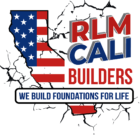Questions That Come Up On A Regular Basis
At the RLM Retrofit Foundation, just when we think we’ve heard everything there is to hear, a new question that takes us by surprise comes up. Even though we have a Frequently Asked Questions (FAQ) section, it’s possible that you still have a query that isn’t covered there. Therefore, cuddle up, and allow us to respond to some of your queries, some of which may appear “out there.” We’re not here to pass judgment on anyone! All we want to do is impart our wisdom to others. Learn more, as well as the reasons why you might require foundation repair or inspection.
What are the factors that lead to foundation damage?
The inability to effectively direct water away from the house is the primary factor in the development of foundation problems. Because the soil expands when it gets wet and contracts when it becomes dry, your house will move when it rains or snows. As a result, the footing that surrounds the perimeter of your house may crack as a result of this. The moment your footing begins to fracture, a pivot point for movement has been established. Now, rather than the movement being dispersed across the entirety of the house, it will all be focused on that one particular place. Any movement at that moment, no matter how slight, has the potential to cause more substantial harm precisely around the place where the break in your footing lies. It is possible to make a large dent in this problem by enhancing drainage; but, it is impossible to totally prevent any house from shifting. It is possible for us to stop a home from collapsing or sinking, but it is impossible for us to prevent a house from upheaving when the soil swells beneath it.
If there are cracks in the foundation of my home, does that mean the foundation needs to be repaired?
Although there are circumstances in which cracks in your slab could necessitate foundation repair, the vast majority of the time, the answer is not yes. In the same way that we can count on the sun to rise each morning, we can depend on the fact that concrete slabs will break over the course of time. You do not have a foundation problem if you do not have any more structural difficulties that are comparable to those that were highlighted in the response to the first question. If the crack can be followed through the footing to the exterior of the home, this indicates that a hinge point for movement has been created, which increases the likelihood that there will be an issue in the future. Because of this, it is of the utmost importance to guarantee that there is adequate drainage. The less movement that occurs in your foundation as a result of major moisture fluctuations in the soil beneath your house, the less movement that occurs in your house overall, which ultimately results in fewer cracks in your slab.
How Can I Tell If I Have a Problem with My Foundation?
Everyone will be able to see the issues with the foundation. If there are no glaring faults with the structure, you most likely do not have a problem with the foundation. The homeowner is responsible for performing their own inspections. Simply go around the exterior of your home and inspect it for any brick cracks, particularly around the doors and windows, as well as separation in overhangs and between the brick and siding or stucco. Inside of your home, you should inspect the sheetrock for cracks, as well as the floor and any doors that are stuck.
Home inspections focusing on the foundations
Do you require repairs to the foundation of your home? We are more than pleased to be of assistance to you! If you believe that your home’s foundation may be in need of a Prior Foundation Inspection West Hollywood , please feel free to give us a call or obtain a free quote from us right now. Dial (800) 824-6699 to speak with someone from the RLM Retrofit Foundation.
Is the Foundation of Your Home Ready for Use West Hollywood
What It Means For Your House If It Has An Uneven Foundation West Hollywood










